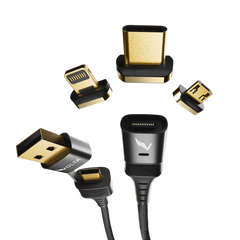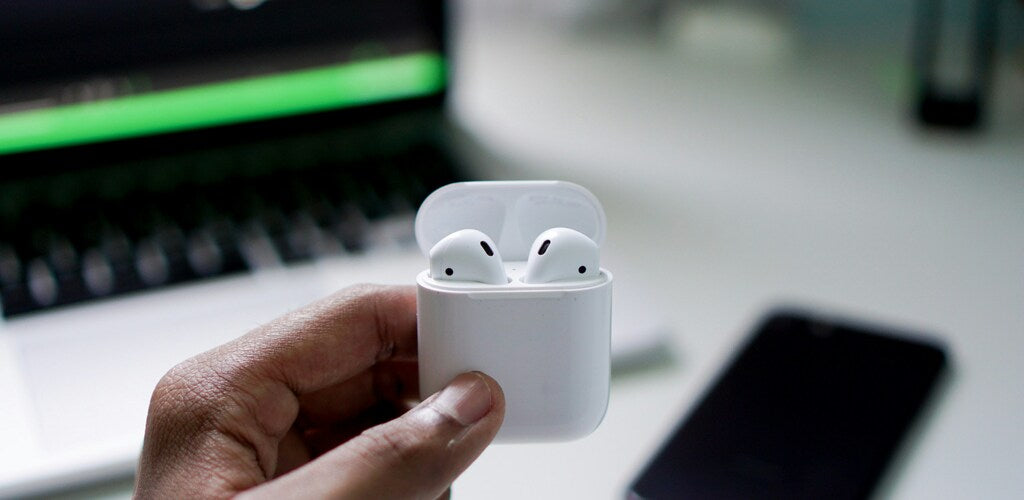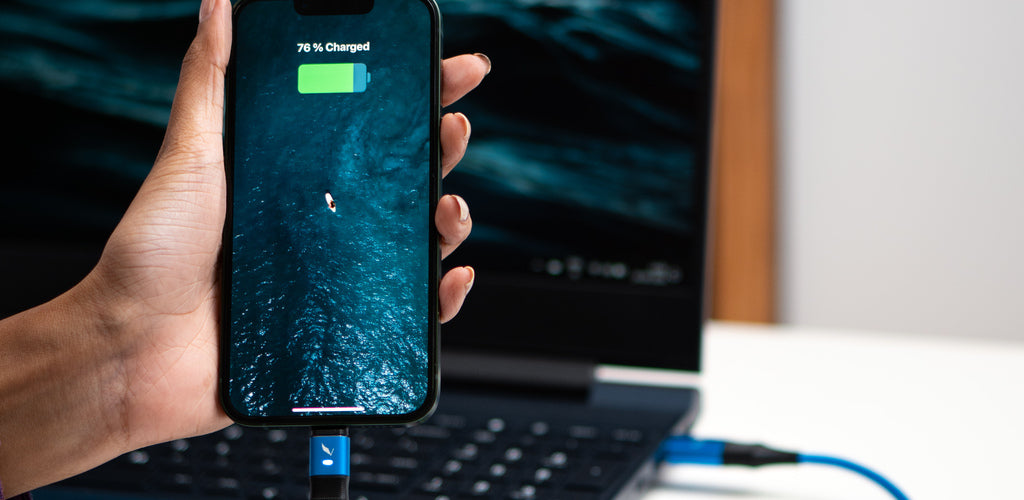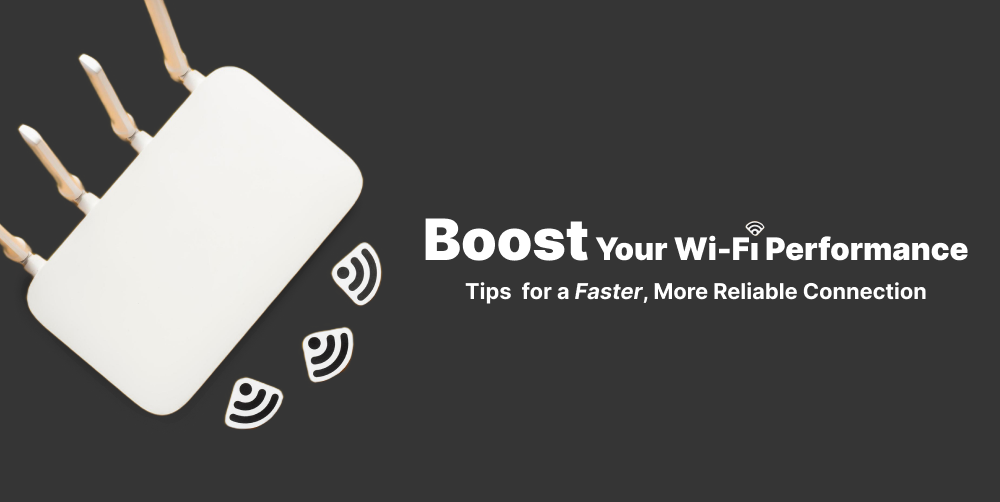Whether you’re a daily AirPods user or someone who reaches for them occasionally, knowing how to keep them charged efficiently is key to avoiding those annoying low-battery warnings. In this blog, we’re breaking down everything you need to know about charging your AirPods, from wired to wireless methods, and tips to get the most out of every charge.
The Charging Basics: How Long Do AirPods Need?
You’ve got places to be, and waiting around for your AirPods to charge can feel like forever. Luckily, AirPods are designed to power up quickly, getting you back to your music, podcasts, or calls in no time.
AirPods Pro 2nd Gen (USB-C): Get an hour of listening from just five minutes of charging. A full charge for the AirPods takes one hour, while the case gives you 30 hours of listening time.
AirPods 3rd Gen: A five-minute charge nets you an hour of playtime. Like the AirPods Pro, they take around one hour to fully charge.
Older models like the 2nd Gen AirPods may take a bit longer, around 1.5 hours for a full charge. But for all models, a quick five-minute charge is a great solution for last-minute needs.
USB-C: A New Charging Standard
Apple’s move towards USB-C on the latest AirPods models brings faster charging and greater compatibility. You can now charge your AirPods Pro 2 case using the same USB-C cable that charges your iPhone 15 or MacBook. It's about simplicity and speed—just one cable for multiple devices.
Don’t worry, though. If you’re still rocking older AirPods, the traditional Lightning charging method works just fine.
Wired vs Wireless Charging: Which Should You Choose?
When it comes to charging your AirPods, you’ve got options. Should you go with wired charging or enjoy the convenience of wireless? Here’s a breakdown of what to expect:
Wired Charging: Whether you use USB-C or Lightning, wired charging is the fastest way to power up your AirPods. You can expect a full charge in 1 to 1.5 hours, depending on the model and with super fast charging cable like the Volta Max you get to charge twice as fast.

Volta MAX - 240W USB-C Magnetic Charging Cable
$50.00 $0.00
✅ Easy Magnetic Connection ✅ Snap to Charge Your Phone, Laptop, and More ✅ Charges ALL Apple Lightning, USB-C & Micro USB Devices ✅ Supports ...
Wireless Charging: Got a Qi-certified charging pad? Simply place your AirPods case on the pad and let it charge wirelessly. Be prepared for a slightly longer wait time—around 2 to 3 hours for a full charge—but the convenience is worth it, especially if you charge overnight. Or you can use the Super fast portable Magnetic power bank (VoltaGo)
No Charger in the Box? Here’s What You Need to Know
Apple has stopped including wall adapters in the box with their latest AirPods. Instead, you’ll find a USB-C cable (or Lightning cable for older models), and you’ll need to provide your own charger. Here are some things to keep in mind:
Any standard USB-C charger will work for the newer AirPods, whether it's your iPhone or MacBook charger.
Apple recommends using a 5W or higher power adapter for optimal charging speed. If you're using a higher wattage charger, like the 20W adapter from the iPhone, your AirPods will charge even faster.
How to Know When Your AirPods Are Fully Charged
Don’t want to guess if your AirPods are ready to go? Apple’s design makes it easy to monitor charging status:
LED Light on the Case: When you connect your case to a power source, the LED indicator will light up. Amber means the case is charging, while green signals a full charge.
Check on Your iPhone: Once paired with your iPhone, you can easily check your AirPods’ battery levels from the home screen. The Battery widget provides a clear view of both the AirPods and the case.
Avoiding Overcharging: What You Need to Know
Worried about overcharging your AirPods or damaging the battery? Modern AirPods cases come with built-in battery protection to ensure that once fully charged, the power flow stops automatically. This protects against overheating and battery degradation, so leaving them on the charger overnight won’t harm them.
For the best battery health, though, it’s still a good idea to unplug the case once fully charged. This can help extend the lifespan of your AirPods’ battery in the long run.
Extra Tips to Maximize Battery Efficiency
Want to make sure your AirPods last as long as possible? Here are a few tips to keep them in top shape:
Avoid extreme temperatures: Charging your AirPods in very hot or cold conditions can harm the battery. Stick to the 0°C to 35°C (32°F to 95°F) range for the best performance.
Use MFi-Certified Chargers: Make sure your charging accessories are MFi-certified for Apple products to ensure optimal charging speeds and safety like the Volta TravelGo
Keep Software Updated: Apple frequently updates firmware to improve charging efficiency and battery health. Always keep your devices updated for the best performance.
FAQs: Charging Your AirPods
Can I charge my AirPods with my iPhone charger?
Yes, you can charge your AirPods with an iPhone charger as long as it’s USB-C compatible or has the right Lightning cable for older models.
How long does it take to fully charge AirPods?
It takes around 1 hour to fully charge AirPods and an additional 1 to 1.5 hours to fully charge the case.
Can I overcharge my AirPods case?
No, the AirPods case is designed with overcharge protection, which automatically stops charging when full.
Does wireless charging take longer than wired?
Yes, wireless charging generally takes longer, around 2 to 3 hours for a full charge, while wired charging takes 1 to 1.5 hours.
How do I know if my AirPods case is charging?
The LED indicator on the case will show amber when charging and turn green when fully charged. You can also check the charge status on your paired iPhone or Mac.
Is it normal for the AirPods case to feel warm while charging?
Yes, slight warmth is normal while charging due to the electromagnetic induction process, especially with wireless charging. However, if the case feels excessively hot, it may indicate an issue.
Conclusion: Power Up Your AirPods Smarter
Whether you’re using the latest USB-C model or still rocking older versions, AirPods charge quickly and efficiently. Knowing how to optimize the charging process can make your listening experience smoother and more convenient.




Leave a comment
This site is protected by hCaptcha and the hCaptcha Privacy Policy and Terms of Service apply.